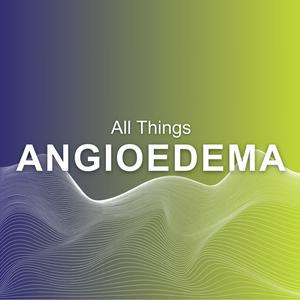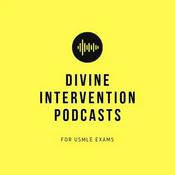All Things Angioedema – Learning about angioedema with Dr. Thomas Buttgereit
ACARE, the Global Allergy and Asthma Excellence Network for Angioedema

Último episodio
46 episodios
- In this episode of All Things Angioedema, Dr. Thomas Buttgereit speaks with Dr. Mark Kačar from Slovenia about the practical, clinical, and organizational steps required to establish a dedicated angioedema center within the ACARE network. Drawing from Mark’s unique experience of helping build angioedema services in multiple countries, the conversation offers valuable insights for clinicians worldwide.
They discuss:
🔹 Why are specialized angioedema centers essential for optimal patient care?
🔹 What clinical expertise, diagnostics, and infrastructure are truly required?
🔹 Which ACARE criteria are most challenging for smaller or emerging centers?
🔹 How can education, registries, and collaboration strengthen national care pathways?
Dr. Kačar shares lessons from Slovenia’s healthcare system, where centralized expertise is key for managing rare and complex diseases like angioedema. He discusses the importance of clinical experience, multidisciplinary teamwork, access to diagnostics and genetics, patient education initiatives, and the realities of meeting ACARE requirements. Together, they highlight how international collaboration, training fellowships, and strong doctor–patient relationships form the foundation of sustainable centersof excellence in angioedema care.
Key Learnings from the Episode:
Dedicated angioedema centers improve care by centralizing expertise and experience for rare diseases.
Small countries such as Slowenia benefit from national referral structures rather than fragmented outpatient care.
ACARE certification requires fulfillment of 32 defined criteria, many embedded in daily clinical practice.
Key challenges include staffing specialized nurses, participation in registries, and access to clinical trials.
Strong diagnostic capabilities, including complement studies and genetics, are essential.
Training experiences at established centers accelerate knowledge transfer and best practices.
Patient education events and collaboration with international patient organizations enhance care quality.
Building an ACARE center is a gradual process driven by teamwork, commitment, and global networking.
Chapters:
00:00 Introduction to Angioedema and ACARE
01:39 Mark's Journey in Allergy and Immunology
05:06 Importance of a Dedicated Angioedema Center
07:56 Experiences from Charité and Clinical Insights
11:16 Challenges in Establishing the Center
16:11 Patient Education and Resources
Do you have suggestions for future episodes? Please provide feedback and offer your suggestions for future topics and expert selection here.
Feedback form ATA: https://forms.office.com/e/ZWxx3D4Cmr - In this episode of All Things Angioedema, Thomas Buttgereit speaks with Dr. Vesna Trajkova, dermatologist and researcher from Skopje, North Macedonia, about the clinical relevance of angioedema in chronic spontaneous urticaria (CSU) and what its presence reveals about disease severity and underlying mechanisms.
They discuss:
🔹 How common is angioedema in patients with CSU?
🔹 Is angioedema linked to more severe or longer-lasting disease?
🔹 What is the role of autoimmunity and autologous serum skin testing?
🔹 How should these findings influence everyday clinical practice?
Dr. Trajkova presents data from her recent study showing that 70% of CSU patients experience angioedema, with the vast majority occurring in those with severe disease. The discussion highlights associations between angioedema, higher disease activity, longer disease duration, and autoimmune markers, emphasizing that angioedema should nobe viewed as a minor accompanying symptom. Together, they explore how recognizing angioedema as a clinically meaningful marker can improve risk stratification, monitoring, and treatment decisions in CSU.
Key Learnings from the Episode:
Angioedema is highly prevalent in CSU, affecting around 70% of patients the CSU population investigated in the study.
The presence of angioedema is strongly associated with severe CSU, occurring in over 80% of severe cases.
CSU patients with angioedema tend to have a longer disease duration, indicating a higher cumulative burden.
Autoimmune markers and comorbid autoimmune diseases are more frequent in CSU patients with angioedema.
Autologous serum skin test positivity shows a trend toward higher angioedema prevalence, supporting an autoimmune component.
Angioedema does not merely coexist with CSU but acts as a marker of disease severity and complexity.
Routine CSU assessment should actively include angioedema evaluation, not just wheals and itch.
Recognizing angioedema can help guide earlier treatment escalation and closer follow-up in clinical practice.
Chapters:
00:00 Introduction to Angioedema and CSU
02:30 Guest Introduction: Vesna Trejkova
04:50 Research Rationale and Study Overview
10:34 Key Findings on Angioedema in CSU
13:15 Study Limitations and Future Directions
15:32 Clinical Implications of Research Findings
Do you have suggestions for future episodes? Please provide feedback and offer your suggestions for future topics and expert selection here.
Feedback form ATA: https://forms.office.com/e/ZWxx3D4Cmr - In this episode, Dr. Thomas Buttgereit welcomes Mats de Lange, medical doctor and PhD candidate at Amsterdam UMC, to discuss one of the rarest and most challenging forms of angioedema – acquired angioedema (AAE) due to C1 inhibitor deficiency (AAE-C1INH).
They discuss
🔹 What causes AAE, and how does it differ from hereditary angioedema?
🔹 Why is treatment still off-label for most patients?
🔹 What did the Amsterdam investigator-initiated trial reveal about Deucrictibant, a new bradykinin B2 receptor antagonist?
🔹 How could this research pave the way for the first approved AAE therapy?
Mats de Lange shares insights from his team’s investigator-initiated trial on the long-term use of Deucrictibant, showing remarkable results – three out of four patients remained attack-free for 20 months. The discussion also highlights the unique challenges of studying such an ultra-rare condition and the hope for future phase III trials.
Join us as we explore how collaborative research and patient participation are advancing the field of bradykinin-mediated angioedema.
Key Learnings from the Episode:
Acquired angioedema (AAE) is an extremely rare disorder caused by C1 inhibitor deficiency. Patients often have underlying hematologic diseases, making trials complex. Deucrictibant showed strong efficacy and safety in an investigator-initiated trial. All participants became attack-free during treatment, without major adverse events. Off-label access remains a challenge – approved therapies are urgently needed. Future multi-center studies and regulatory approval could transform patient care.
Chapters
00:00 Introduction to Angioedema and Guest Introduction
03:06 Understanding Acquired Angioedema due to C1 Inhibitor Deficiency
06:05 Current Treatment Landscape and Challenges
07:16 Investigator-Initiated Trials and Droycriptiband
11:05 Trial Design and Patient Characteristics
11:52 Promising Results from the Trial
13:06 Key Learnings and Future Directions
15:44 Next Steps in Research and Treatment Approval
Do you have suggestions for future episodes? Please provide feedback and offer your suggestions for future topics and expert selection here.
Feedback form ATA: https://forms.office.com/e/ZWxx3D4Cmr - In this episode, Dr. Thomas Buttgereit welcomes Dr. Alexis Bocquet from the French National Center for Angioedema in Grenoble to discuss one of the most challenging forms of drug-induced angioedema — ACE inhibitor–induced angioedema.
They discuss
🔹 Why are ACE inhibitors among the most prescribed cardiovascular drugs worldwide?
🔹 How can physicians distinguish bradykinin-mediated from mast-cell-mediated angioedema?
🔹 What are the key risk factors for developing ACE inhibitor–induced angioedema?
🔹 How can the new diagnostic core support clinicians in practice?
Dr. Bocquet shares findings from a French multicenter study conducted in Grenoble and Réunion Island, where he and his colleagues identified four clinical criteria that accurately differentiate ACE inhibitor–induced angioedema from other forms. He also explains the score they developed — a five-point tool that predicts diagnosis with more than 90% accuracy — and offers practical advice on treatment, including when to use icatibant or C1 inhibitor concentrate in acute care.
Join us for a scientifically rich and practical conversation on how to diagnose and manage one of the most life-threatening but underrecognized types of angioedema.
Key Learnings from the Epesode:
ACE inhibitors are widely used for heart failure, hypertension, and kidney protection but can rarely cause bradykinin-mediated angioedema.
The pathophysiology involves inhibition of bradykinin degradation, leading to increased vascular permeability and swelling.
Risk factors include age over 65, female sex, African or Afro-Caribbean ethnicity, concomitant use of NSAIDs, smoking, cardiovascular comorbidities, and genetic variants in bradykinin receptor B2 or aminopeptidase N.
In a French bicenter study (Grenoble & Réunion Island, 2019–2022), 126 patients were evaluated for angioedema without hives; 49 were confirmed as ACE inhibitor–induced, and 44 as mast cell-mediated.
The four diagnostic factors identified were:
No relapse after discontinuation of ACE inhibitor
Attack duration longer than 24 hours
Hospitalization in intensive care
Fewer than three previous angioedema attacks
These factors formed the five-point score:
0–2 points → Likely mast cell angioedema
4–5 points → >90% probability of ACE inhibitor–induced angioedema
Persistent angioedema after stopping ACE inhibitors usually indicates mast- cell-mediated angioedema or CSU, not ACE inhibitor–induced angioedema.
Genetic testing may help rule out hereditary angioedema with normal C1 inhibitor.
Tranexamic acid shows little benefit in ACE inhibitor–induced angioedema.
Treatment recommendations:
Icatibant is first-line off-label therapy with rapid efficacy.
C1 inhibitor concentrate is an effective alternative.
Both are off-label but justified in life-threatening upper-airway cases.
The team plans a national prospective validation of the diagnostic Score for ACE inhibitor-induced anigoedema across France in 2025.
Chapters:
00:00 Introduction to ACE Inhibitor Induced Angioedema
03:31 Understanding ACE Inhibitors and Their Benefits
06:00 Pathophysiology and Risk Factors of Angioedema
09:02 Research Insights from CRIAC and Study Design
11:30 Clinical Features and Diagnosis of Angioedema
14:01 Proposed Diagnostic Score for Angioedema
16:40 Treatment Options for ACE Inhibitor Induced Angioedema
Do you have suggestions for future episodes? Please provide feedback and offer your suggestions for future topics and expert selection here.
Feedback form ATA: https://forms.office.com/e/ZWxx3D4Cmr - In this episode, Dr. Thomas Buttgereit welcomes Dr. Efrem Eren, immunologist and allergy specialist from the University of Southampton, to discuss practical approaches to diagnosing and treating patients with recurrent angioedema, especially those with normal C1 inhibitor values.
They discuss:
🔹 How can physicians distinguish histamine- vs. bradykinin-mediated angioedema?
🔹 Why do some patients develop angioedema years after starting ACE inhibitors?
🔹 How can icatibant be used not only as treatment but also as a diagnostic tool?
🔹 What options exist for long-term prophylaxis when standard therapies fail?
Dr. Eren shares his clinical framework for approaching difficult cases, including the value of patient education, treatment trials with tranexamic acid or omalizumab, and the growing role of icatibant and kallikrein inhibitors. He also highlights a moving patient story that demonstrates the life-changing impact of correct diagnosis and targeted therapy.
Join us for this insightful discussion on how to navigate diagnostic uncertainty, choose treatment strategies, and improve patient outcomes in rare forms of angioedema.
Key Learnings from the Episode:
Categorization is key: Angioedema can often be grouped into histamine-mediated, mast-cell–bradykinin–mediated, or bradykinin-mediated causes.
Diagnostic limitations: Laboratory tools are scarce; bradykinin measurement is not routinely available. Diagnosis often relies on clinical features and treatment response.
ACE inhibitor angioedema can appear years after therapy initiation, often requiring a “second hit” to trigger.
Treatment trials help guide diagnosis:
High-dose antihistamines → mast-cell mediated
Steroid responsiveness → mast-cell involvement
Omalizumab → effective in some mast-cell angioedema cases
Icatibant → valuable for suspected bradykinin-mediated angioedema (also used diagnostically)
Tranexamic acid can be effective for some patients with angioedema linked to mast cells.
C1 inhibitor concentrate is ineffective in patients with normal C1 levels and function.
Patient burden is high, including anxiety, frequent hospital admissions, and restrictions in daily life.
Case story: A teenager with unexplained recurrent angioedema gained her independence and normal life back after diagnosis and treatment with icatibant and kallikrein inhibition.
Prophylaxis: Kallikrein inhibitors like berotralstat can be used in select patients; responses are typically evaluated over at least 3 months.
Objective evidence (photos, symptom scores) is essential for diagnosis and evaluating treatment response.
Chapters:
00:00 Introduction to Angioedema and Its Challenges
02:48 Understanding Angioedema: Types and Diagnosis
07:13 Treatment Approaches for Angioedema
12:22 Patient Experiences and Impact of Angioedema
15:35 Prophylactic Treatments and Future Directions
Do you have suggestions for future episodes? Please provide feedback and offer your suggestions for future topics and expert selection here.
Feedback form ATA: https://forms.office.com/e/ZWxx3D4Cmr
Más podcasts de Educación
Podcasts a la moda de Educación
Acerca de All Things Angioedema – Learning about angioedema with Dr. Thomas Buttgereit
Started by ACARE in 2023 within the ACARELevelUp program this podcast is an invaluable resource for health care professionals, and anyone interested in learning more about angioedema. Dr. Thomas Buttgereit, Head of the Study Center at Charité Berlin, discusses all forms of angioedema, their pathophysiology, burden and treatment strategies with experts from all over the world. All opinions expressed are those of the faculty. This content should not be taken as medical advice and is for informational purposes only. Learn more about ACARE here: https://acare-network.com/
Sitio web del podcastEscucha All Things Angioedema – Learning about angioedema with Dr. Thomas Buttgereit, Listening Time: English Practice y muchos más podcasts de todo el mundo con la aplicación de radio.net

Descarga la app gratuita: radio.net
- Añadir radios y podcasts a favoritos
- Transmisión por Wi-Fi y Bluetooth
- Carplay & Android Auto compatible
- Muchas otras funciones de la app
Descarga la app gratuita: radio.net
- Añadir radios y podcasts a favoritos
- Transmisión por Wi-Fi y Bluetooth
- Carplay & Android Auto compatible
- Muchas otras funciones de la app


All Things Angioedema – Learning about angioedema with Dr. Thomas Buttgereit
Escanea el código,
Descarga la app,
Escucha.
Descarga la app,
Escucha.






































